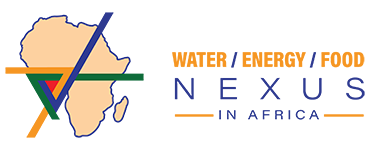
- This event has passed.
The WEF Nexus in Africa Initiative joins webinar series
April 13, 2021 @ 1:00 pm - 2:30 pm
In collaboration with FAO, SEI, and KTH, we are co-hosting a series of webinars over the course of the year related to WEF nexus issues. In addition to ones already scheduled, on April 13 we will host a session on “The WEF Nexus in practice: multi-scalar case studies and a WEF Nexus Index” with speakers Janez Susnik (IHE Delft), Sara Masia, (IHE Delft), and Gareth Simpson (Jones and Wagener). This webinar will discuss WEF nexus model development, an ongoing WEF-Tools project, and a globally applicable WEF Nexus Index.
Date and Time
April 13th, 13:00–14:30 GMT+2
Detailed Description
The webinar will present three perspectives of about 20 minutes each, aiming to demonstrate the WEF Nexus in practice. The first comes from the recent SIM4NEXUS project (www.sim4nexus.eu), showing the process of complex WEF nexus model development in the EU, including the incorporation of policies, and the development of online WEF nexus serious games. The second, from the ongoing WEF-Tools project (www.wef-tools.un-ihe.org), illustrates ongoing, practically relevant nexus research for the SADC and MENA regions. The final perspective showcases the development of a globally applicable WEF Nexus Index to track nexus performance in a concise, understandable manner.
SIM4NEXUS (Janez Susnik, IHE Delft)
SIM4NEXUS is a recently-ended EC H2020 project. In this introduction, the SIM4NEXUS approach to mapping, modeling, and understanding the nexus is described. The approach includes nexus policy coherence assessment, qualitative nexus systems mapping, quantitative system dynamics modeling, and development of serious games. SIM4NEXUS applied its approach to 12 case studies in scale from sub-national to global, and include Sardinia, Andalusia, The Netherlands, Latvia, Sweden, two transboundary cases, and the EU.
WEF-Tools (Sara Masia, IHE Delft)
The WEF-Tools project aims at qualitatively and quantitatively assessing the WEF nexus in the Songwe River Basin (SRB), located on the border between Malawi and Tanzania. Reducing poverty, improving human health and livelihoods, ensuring water, food, and energy security, mitigating floods, and enhancing sustainable river basin management are the main challenges recognized by the SRB Programme (SRBP) jointly developed by the Governments of both countries. The WEF-Tools approach applied in the case study starts from conceptual mapping of the SRB nexus system to the development of quantitative tools such as System Dynamics Models, and identification of suitable indicators for the assessment of different scenarios, management strategies, subsequently providing decision-makers with feasible development pathways.
WEF Nexus Index (Gareth Simpson, Jones & Wagener)
A national-level composite indicator has been developed for 170 nations to provide a quantitative measure of the WEF nexus. Together with its interactive visualization tool (www.wefnexusindex.org), the WEF Nexus Index provides a means for assessing and benchmarking countries regarding integrated resources security. The tool also provides an entry point into the underlying pillars (water, energy, and food), sub-pillars (related to access and availability of the resources), and the 21 indicators that constitute the composite indicator. The tool can assist policy- and decision-makers and serves as a measure of a subset of the SDGs.
For registration and more details on the webinar, click here!
